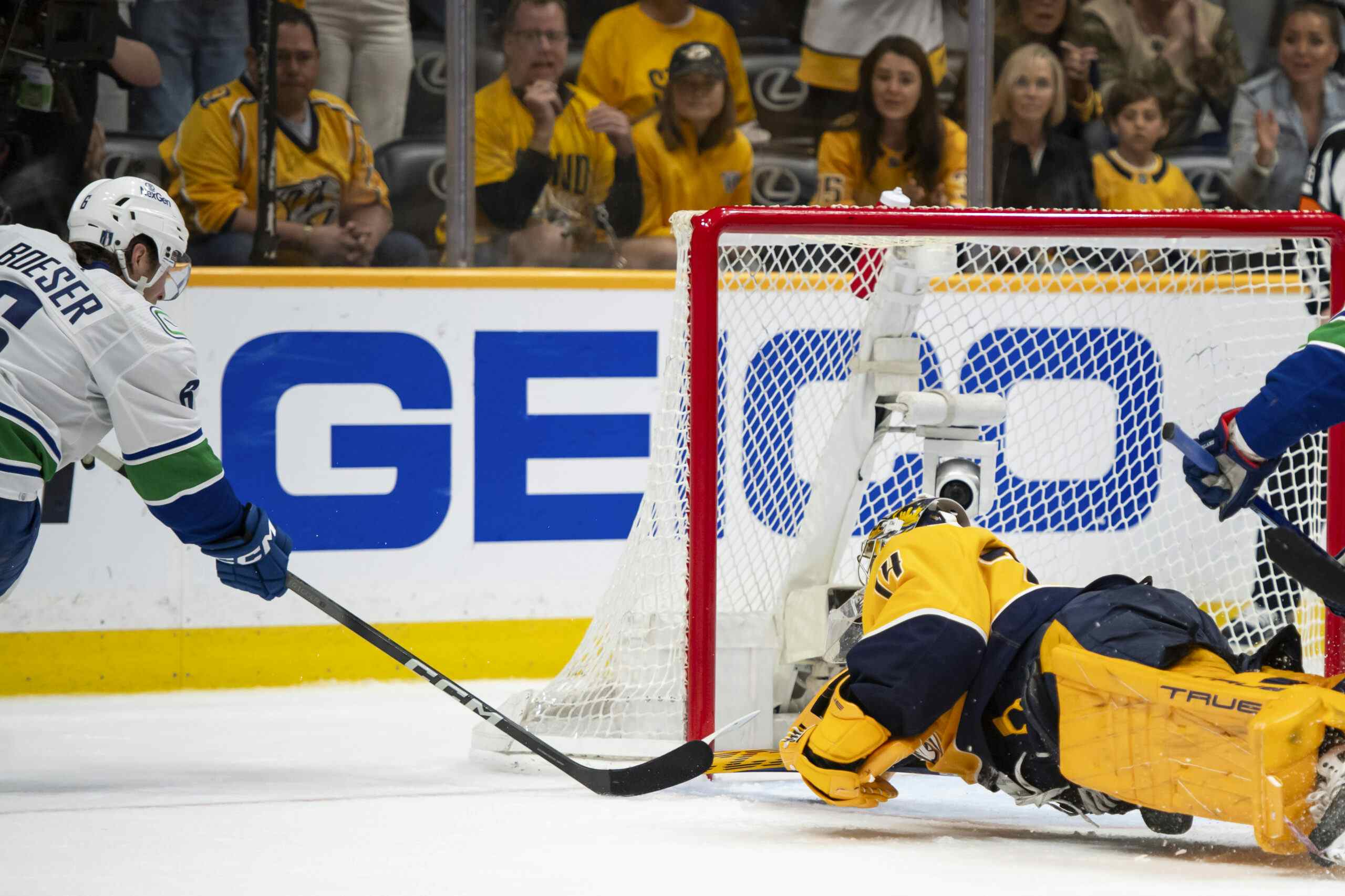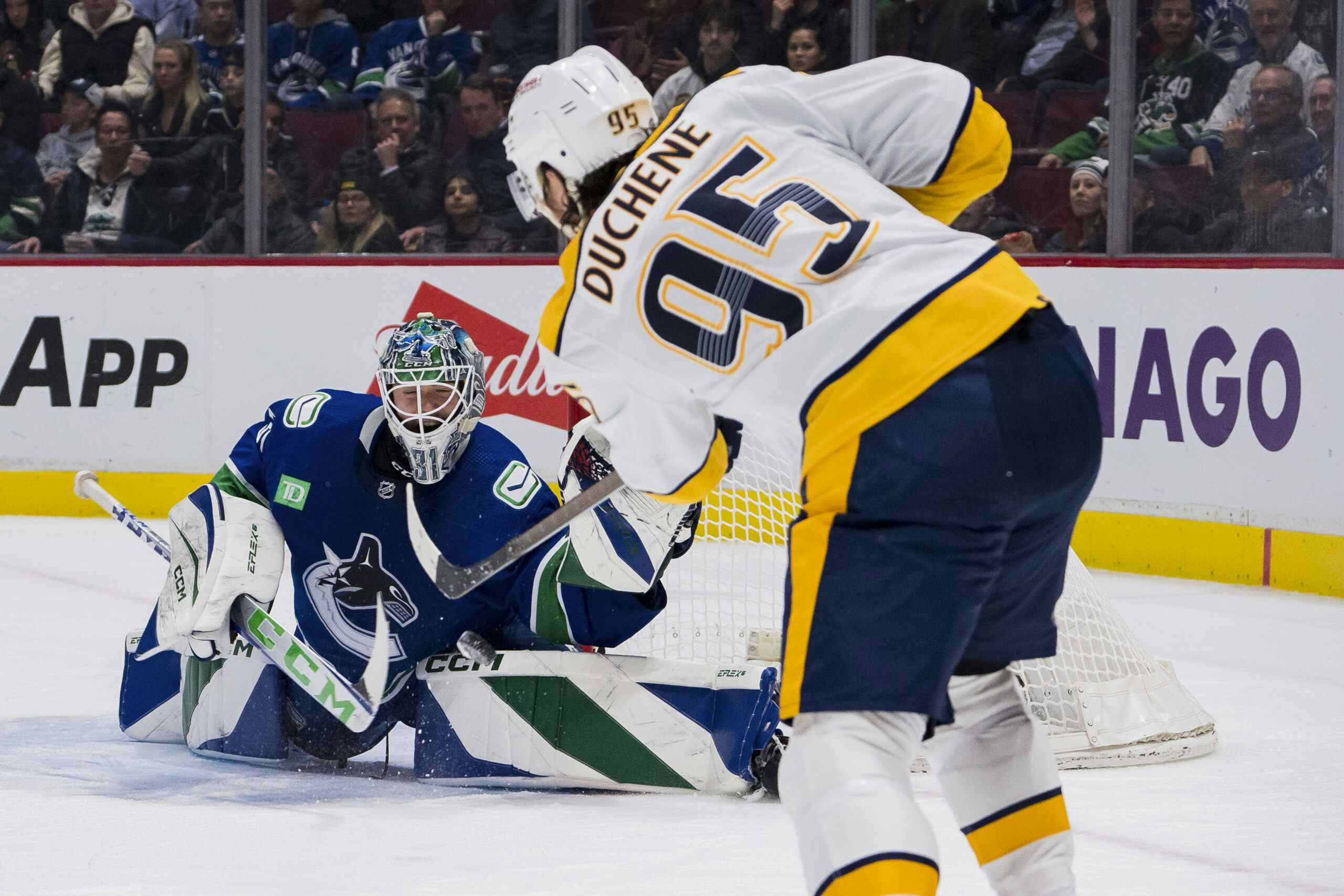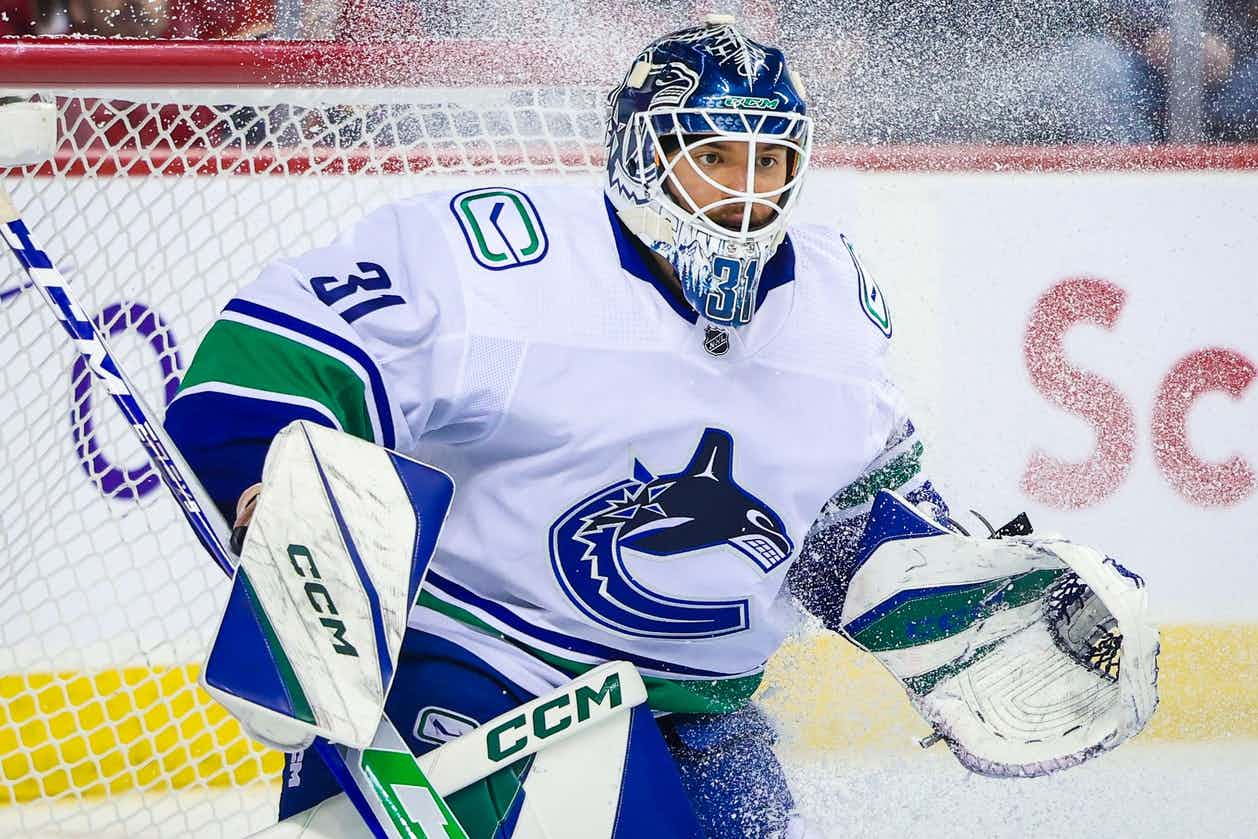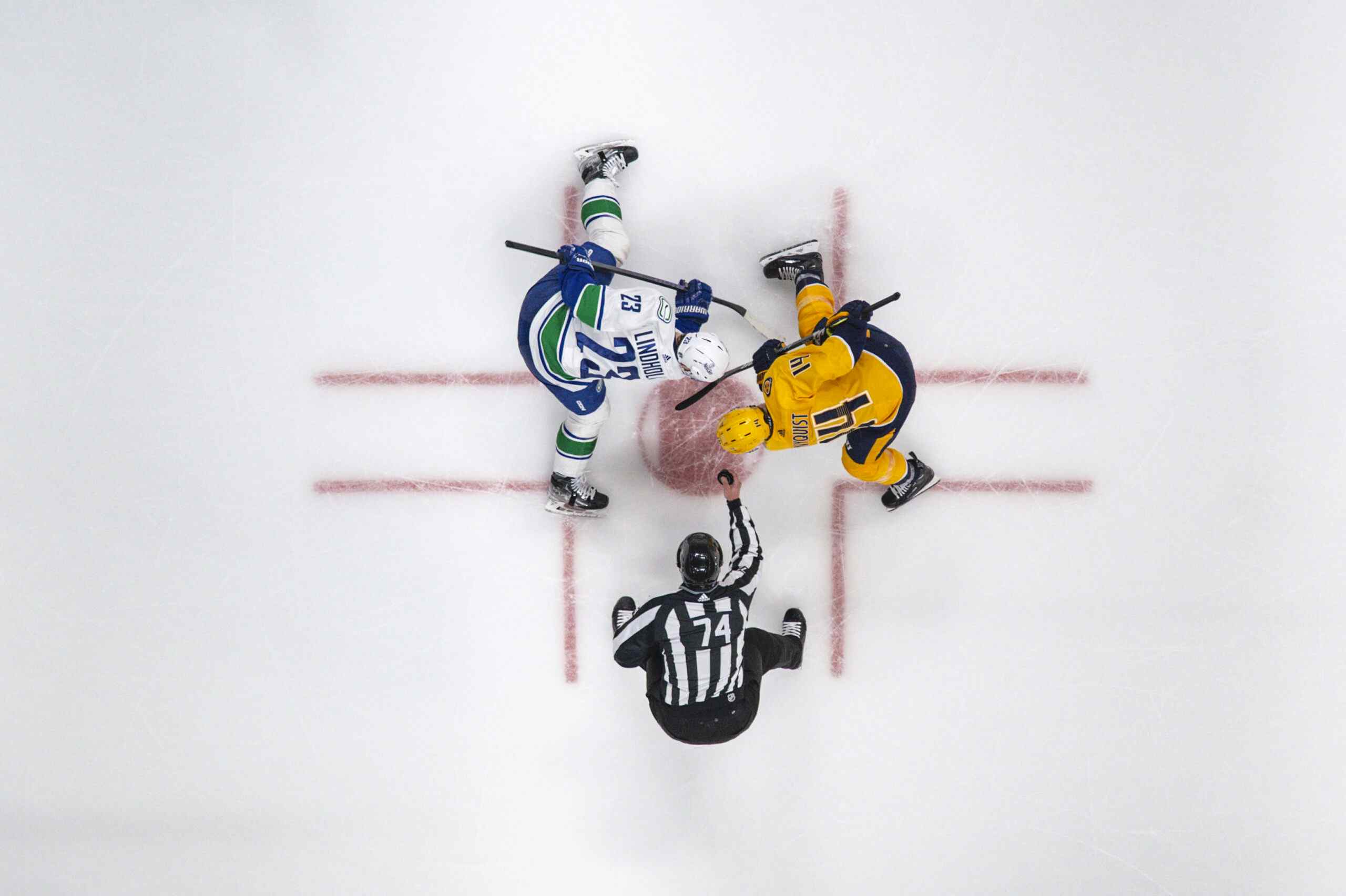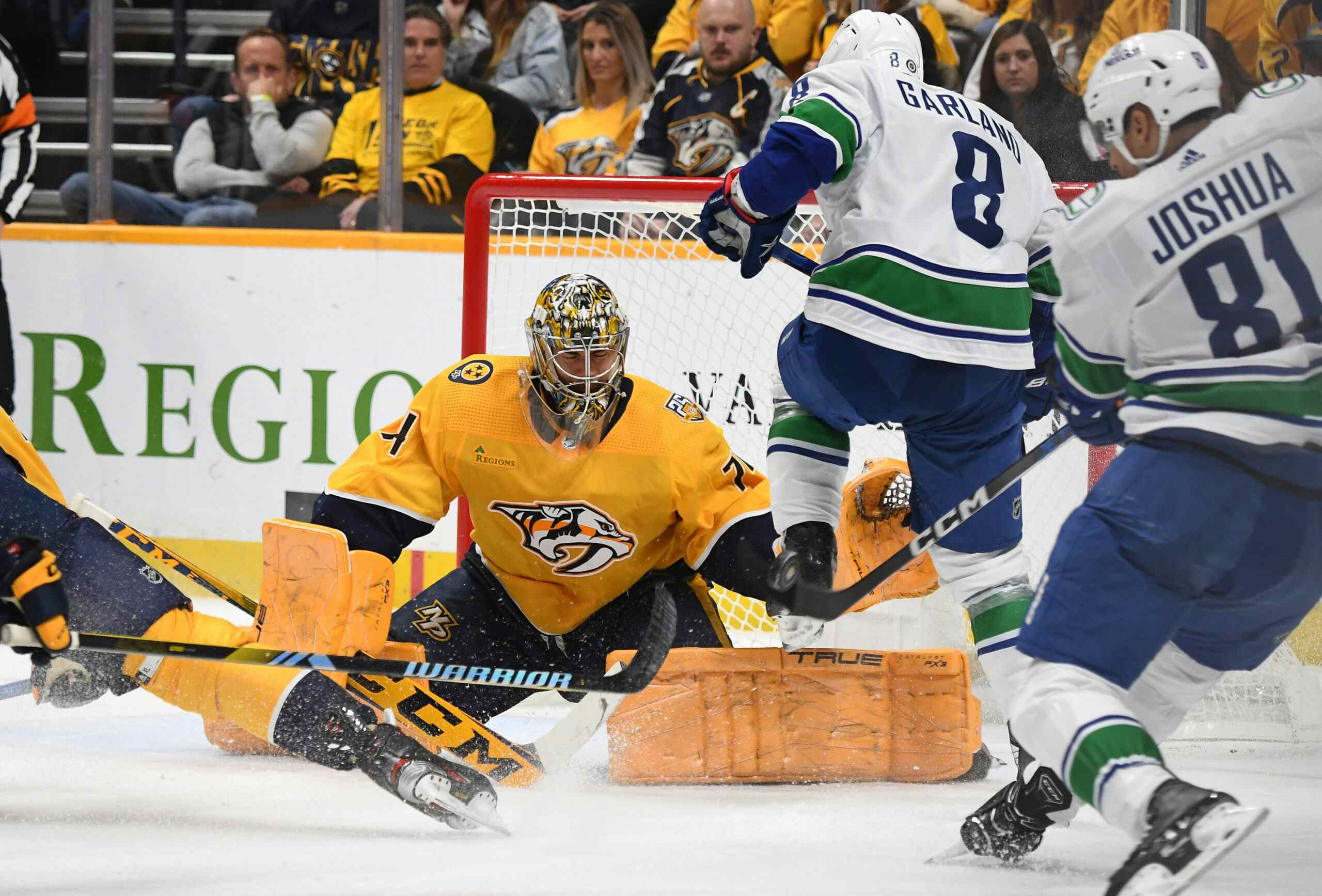Don Cherry confused me, Episode I
By Cam Charron
12 years agoWelcome to ‘Don Cherry confused me’, a new Sunday-morning feature that will chronicle the silly things that Don Cherry says the night before on Coach’s Corner. The feature will focus on Cherry’s out-dated focus on the game and attempt to get him to understand that things happen in hockey a little bit differently than he remembers them.

“Anyway, Vancouver. Everybody is after Vancouver. I mean, and I saw something on television that I couldn’t believe. It had every bad headline that was in the paper from the playoffs back, it was unbelievable how bad Lalongo is. It’s always Lalongo’s fault, it’s always the goaltender’s fault.”“First of all, I don’t think Vancouver’s paying the price and I can prove it. When you want to win, you want to pay the price and blocking shots. Everybody else likes to score goals and have fun, even fighting, but blocking shots, you have to pay the price.”
I’m not sure what game Don Cherry thinks he comments about, but to win games, you want to do the exact opposite of blocking shots, as in, make the other team block shots.
Blocked shots is often passed off as a measure of defense (I once saw a guy ask why everybody thought Detroit was such a good defensive team if they didn’t block so many shots) but the best indicator of team defense is Goals Against. Not blocked shots. The teams that block the most shots also allow the most shots through, and the most goals.
Last season, the Vancouver Canucks led the NHL with a 2.20 goals against average. They also blocked 1071 shots, fewer than just New Jersey, Detroit, Nashville, Los Angeles and Phoenix. All of those teams save New Jersey were playoff teams, and the Devils were right in there until season’s end.
Meanwhile, the teams that blocked the most—the New York Islanders and Toronto Maple Leafs, finished below all five of the “worst” shot-blocking teams in the standings.
Blocked shots is a point of contention among the more traditional viewpoints of hockey and the newer, more advanced. It upsets the conventional view of a warrior player throwing his weight in front of a hard blast from the point, or holding his ground in the slot and letting a forward’s shot bounce off their shin pads. There is a talent in shot blocking, sure, but your team wants to be the team that makes the other guys block shots.
Ottawa GM Bryan Murray mentioned it when he signed Sergei Gonchar in lieu of Anton Volchenkov. “I would like to block shots, but I would like the other team to block shots.” His error in judgment was not in that statement, but assuming that Gonchar was a player who influenced positive possession. Your best players are the ones who influence that possession, and not the ones who take it on the chin; the Ryan Johnsons of the world, per se.
What else, Grapes?
“I’ll give you an example: They played Edmonton. Edmonton had 31 blocked shots and I think they had 11. Well you’re going to say ‘they had more shots at ’em’ and I think it’s the way it goes, in ten games they’ve only had 84 blocked shots, and the other teams against them have had 164.”
Congratulations Don, you’ve discovered score effects.
The Canucks have been losing many of these games, or down by a goal, and that means that more pucks are going to be directed at the other team’s net than their own. I’d argue that having 164 shots blocked against 84 is a pretty good ratio.
It makes me wonder if Don is going to exhaustively research this data once the Canucks’ percentages turn around and they’re winning games. Against Washington, the Capitals blocked 18 shots and the Canucks just 6. The Canucks also fired 69 pucks towards the net while the Capitals just 46. Which number is more important?
Recent articles from Cam Charron

